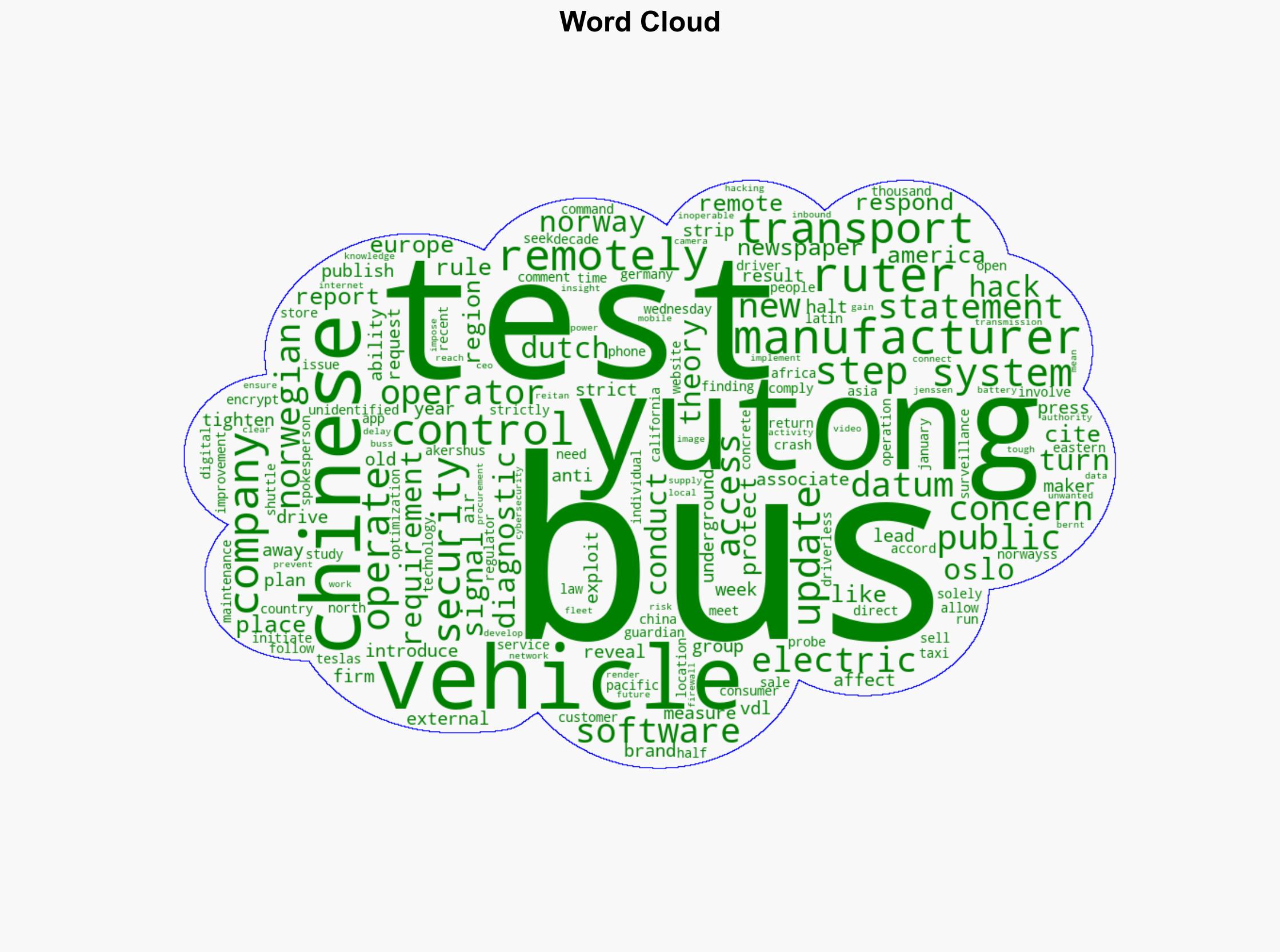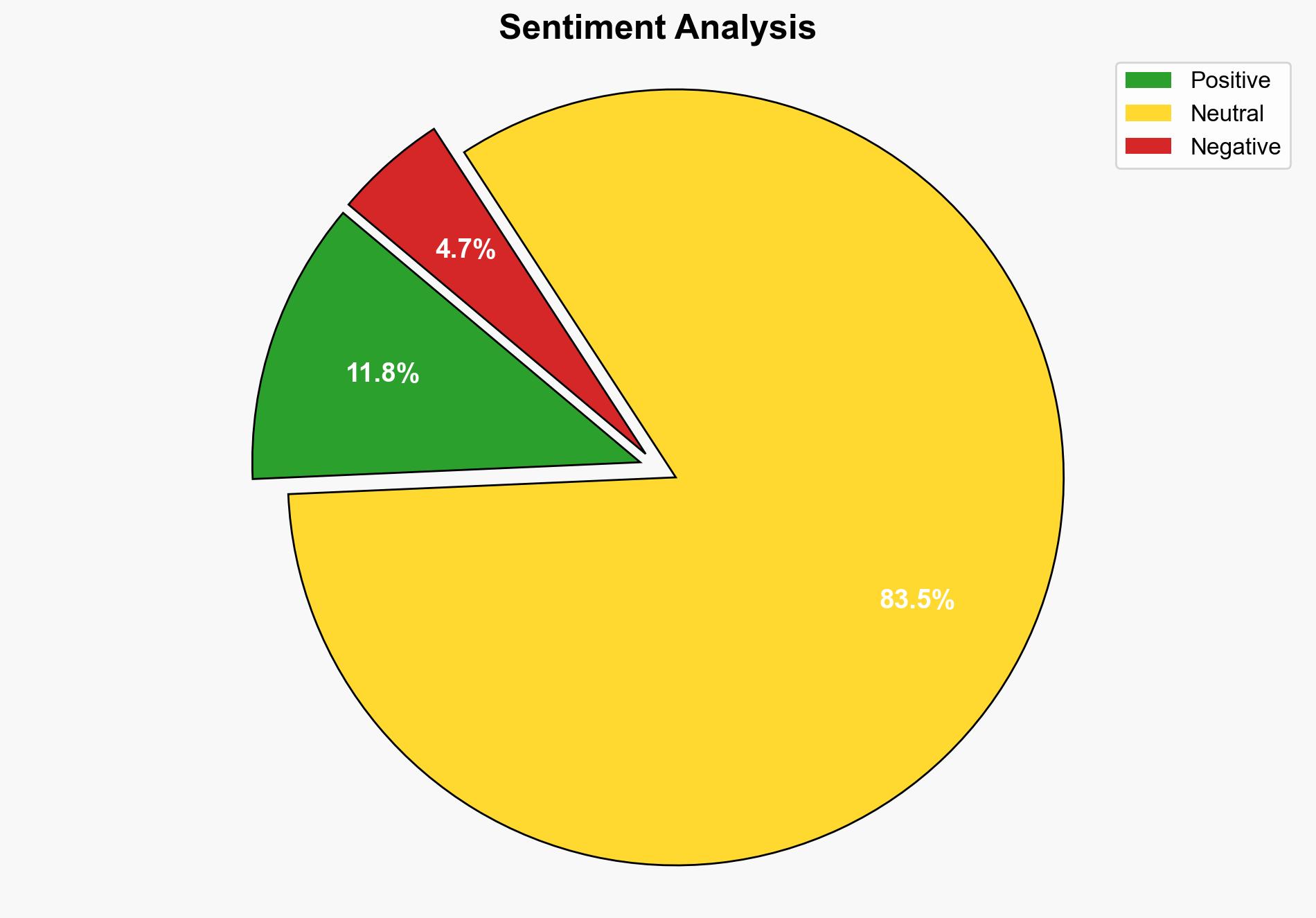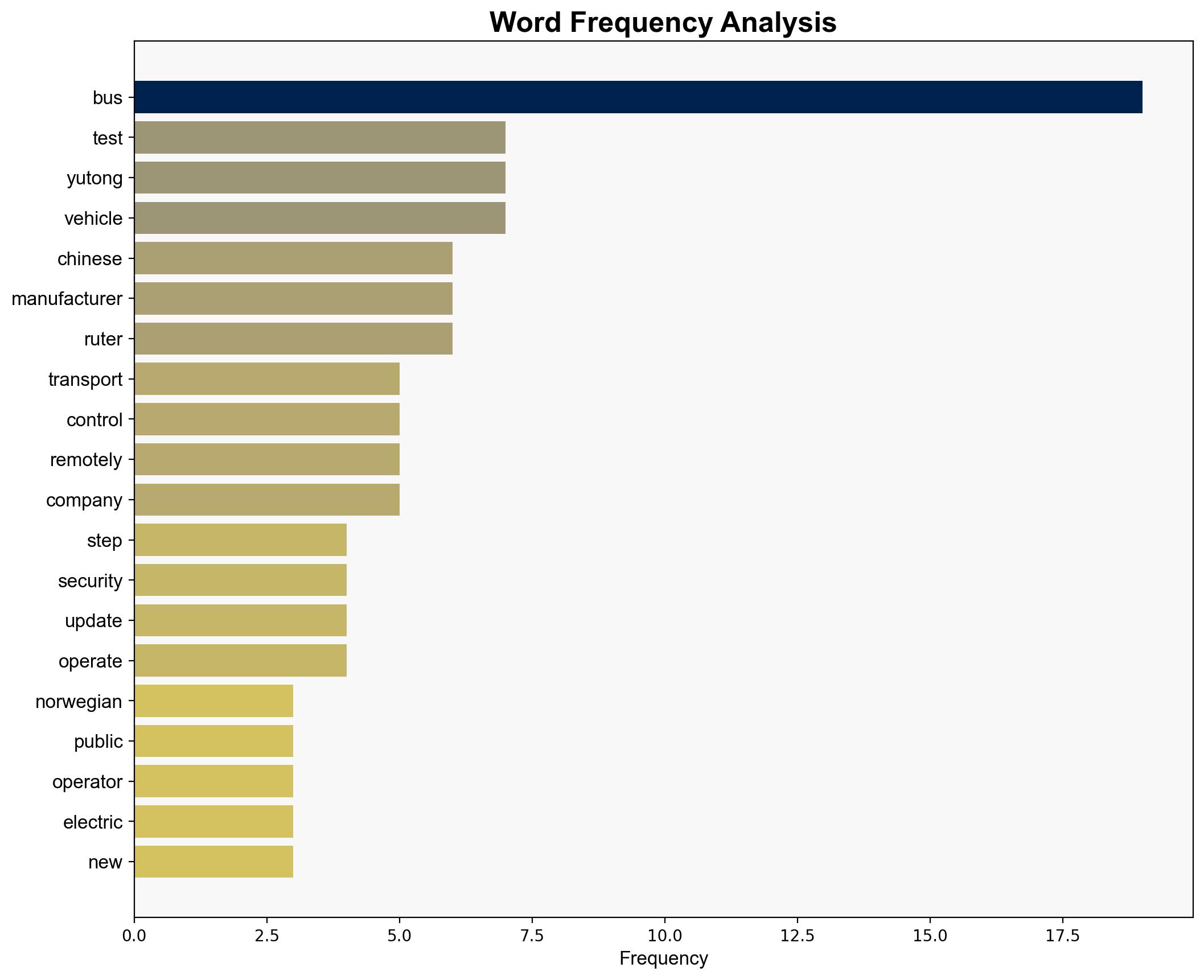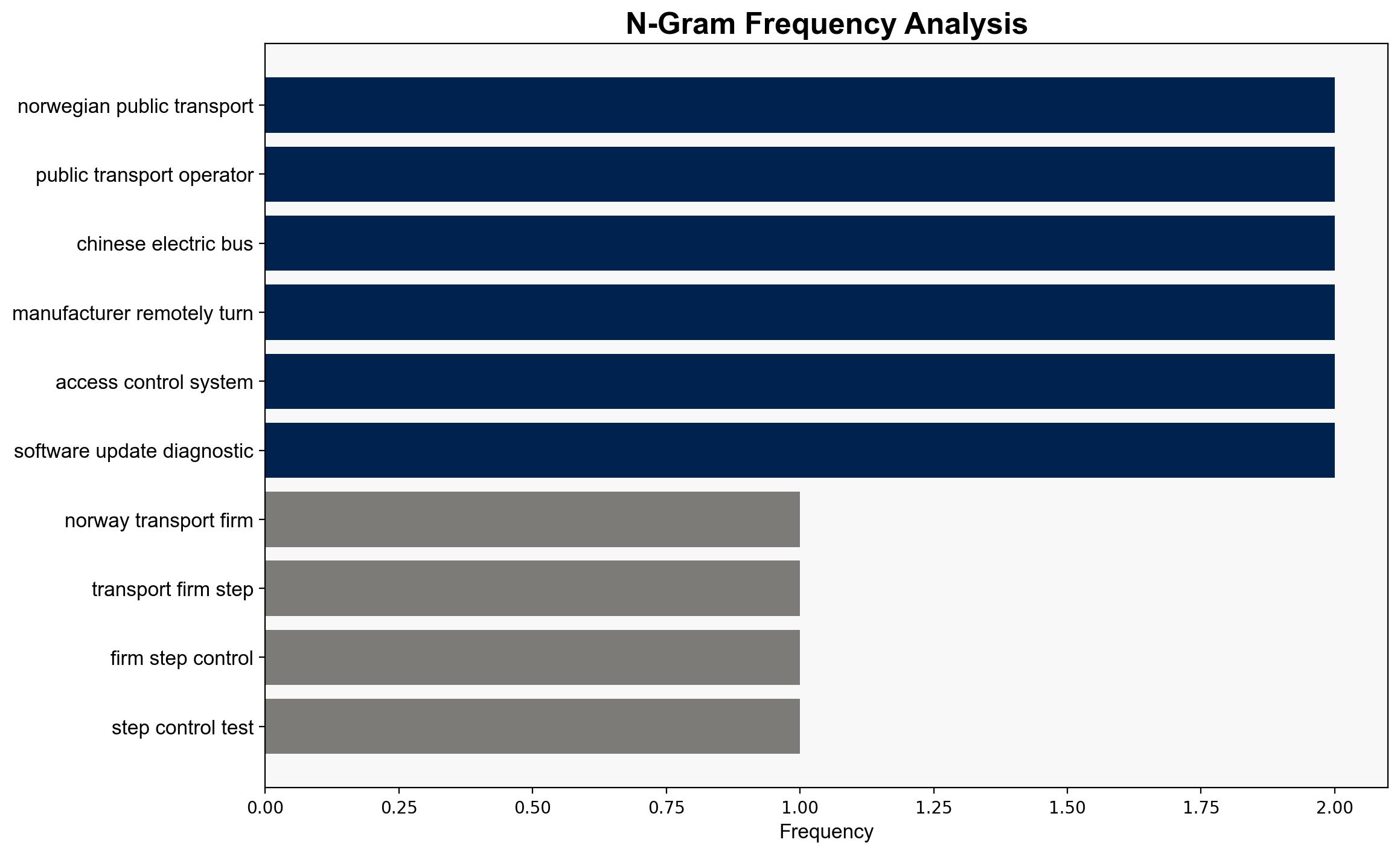Norway transport firm steps up controls after tests show Chinese-made buses can be halted remotely – Tech Xplore
Published on: 2025-11-05
Intelligence Report: Norway transport firm steps up controls after tests show Chinese-made buses can be halted remotely – Tech Xplore
1. BLUF (Bottom Line Up Front)
The most supported hypothesis is that the remote control capability of Chinese-made buses represents a significant cybersecurity risk, potentially enabling unauthorized access and control. Confidence level is moderate due to limited direct evidence of malicious intent. Recommended action includes enhancing cybersecurity measures and conducting thorough risk assessments of foreign-manufactured transport systems.
2. Competing Hypotheses
1. **Hypothesis A**: The remote control capability of the Chinese-made buses is an intentional design feature for maintenance and optimization, with no malicious intent.
2. **Hypothesis B**: The remote control capability poses a cybersecurity risk, potentially allowing unauthorized access and control, either through negligence or intentional design for surveillance or disruption.
Using Analysis of Competing Hypotheses (ACH), Hypothesis B is better supported due to the lack of transparency in the manufacturer’s response and the potential for exploitation highlighted by the tests.
3. Key Assumptions and Red Flags
– **Assumptions**: It is assumed that the manufacturer’s remote access is solely for maintenance purposes. Another assumption is that the encryption and security measures are sufficient to prevent unauthorized access.
– **Red Flags**: The manufacturer’s vague response and the absence of detailed security protocols raise concerns. The lack of independent verification of the manufacturer’s claims is a significant red flag.
4. Implications and Strategic Risks
The ability to remotely control public transport vehicles could lead to significant risks, including potential disruptions to public services, economic impacts, and threats to public safety. Geopolitically, this could strain relations between Norway and China, influencing broader European cybersecurity policies. The psychological impact on public trust in technology and foreign-manufactured goods could also be profound.
5. Recommendations and Outlook
- Implement stringent cybersecurity protocols and conduct regular audits of foreign-manufactured systems.
- Engage in diplomatic dialogue with the manufacturer to ensure transparency and compliance with international cybersecurity standards.
- Scenario-based projections:
- Best: Enhanced security measures prevent unauthorized access, maintaining public trust.
- Worst: Exploitation of remote control capabilities leads to significant disruptions and geopolitical tensions.
- Most Likely: Increased scrutiny and regulation of foreign-manufactured transport systems, with gradual improvements in cybersecurity.
6. Key Individuals and Entities
– Bernt Reitan Jenssen (Ruter CEO)
– Yutong Group (Chinese bus manufacturer)
7. Thematic Tags
national security threats, cybersecurity, counter-terrorism, regional focus





